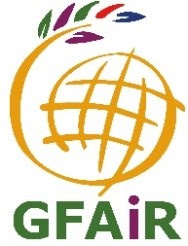10 March 2025. Brussels. In person meeting of the Collective Action Agroecology. This is a pre-event before the DeSIRA-Lift conference: Boosting agrifood research and innovation cooperation for impact at scale (11-13 March 2025 in Brussels).
Throughout 2020-2021, the Global Forum on Agricultural Innovation Research and Innovation (GFAiR) facilitated an intensive consultation process in Asia-Pacific, as well as Africa, Europe and the Middle East. It resulted in the identification of several Collective Actions. One of the Collective Actions is on Agroecology.
6 consortia were selected among 28 applications for the GFAiR call for "Letters of Intention (LoI) on Agrocology":
- APIRAS-APAARI consortium. The Asia- Pacific Islands Rural Advisory Services (APIRAS, Thailand) consortium consists of Asia-Pacific Association of Agricultural Research Institutions (APAARI, Thailand), Agricultural Research, Education and Extension Organization (AREEO, Iran), Bangladesh Agricultural Research Council (BARC, Bangladesh). Sri Lanka Council for Agricultural Research Policy (SLCARP, Sri Lanka), and Asian NGO Coalition for Agrarian Reform and Rural Development (ANGOC, The Philippines). APIRAS jointly with APAARI, has been undertaking efforts to mainstream agroecology in research, extension and education systems in the Asia-Pacific by forming a Working Group on Agroecology (WGA). The WGA has organised three consultations and produced two policy briefs, and an inventory on course curricula on agroecology.
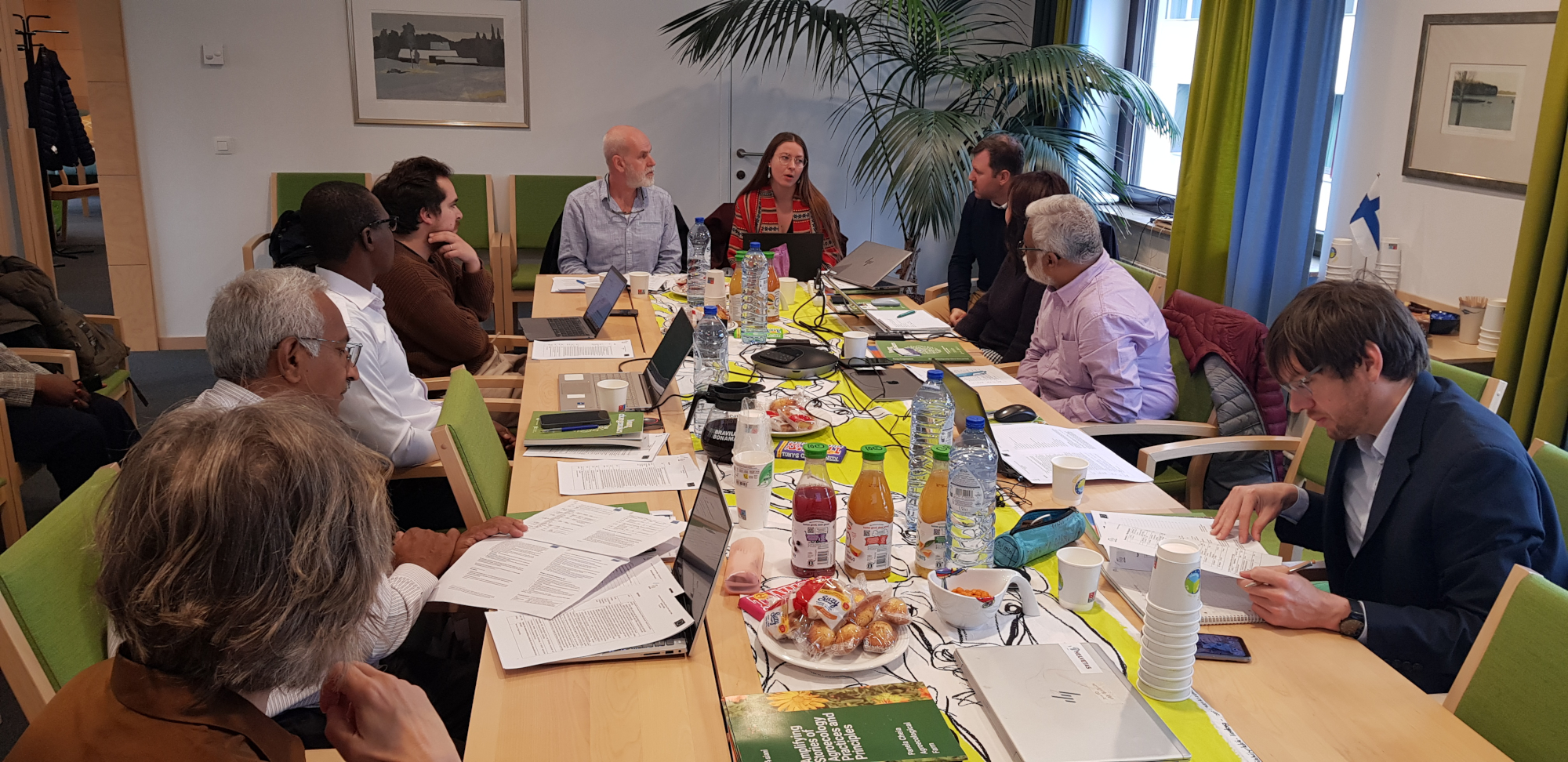
- CACAARI consortium. The Central Asia and the Caucasus Association of Agricultural ResearchInstitutes (CACAARI, Uzbekistan) consortium consists of National Academy of Sciences of the Republic of Kazakhstan (NASRK, Kazakhstan), Union of Organic Producers of Kazakhstan (qazaqorganic, Kazakhstan), Armenian National Agrarian University (ANAU, Armenia), Association for Farmers Rights Défense (AFRD, Georgia), Agricultural Advisory Organization "Neksigol Mushovir" (NGO, Tajikistan).
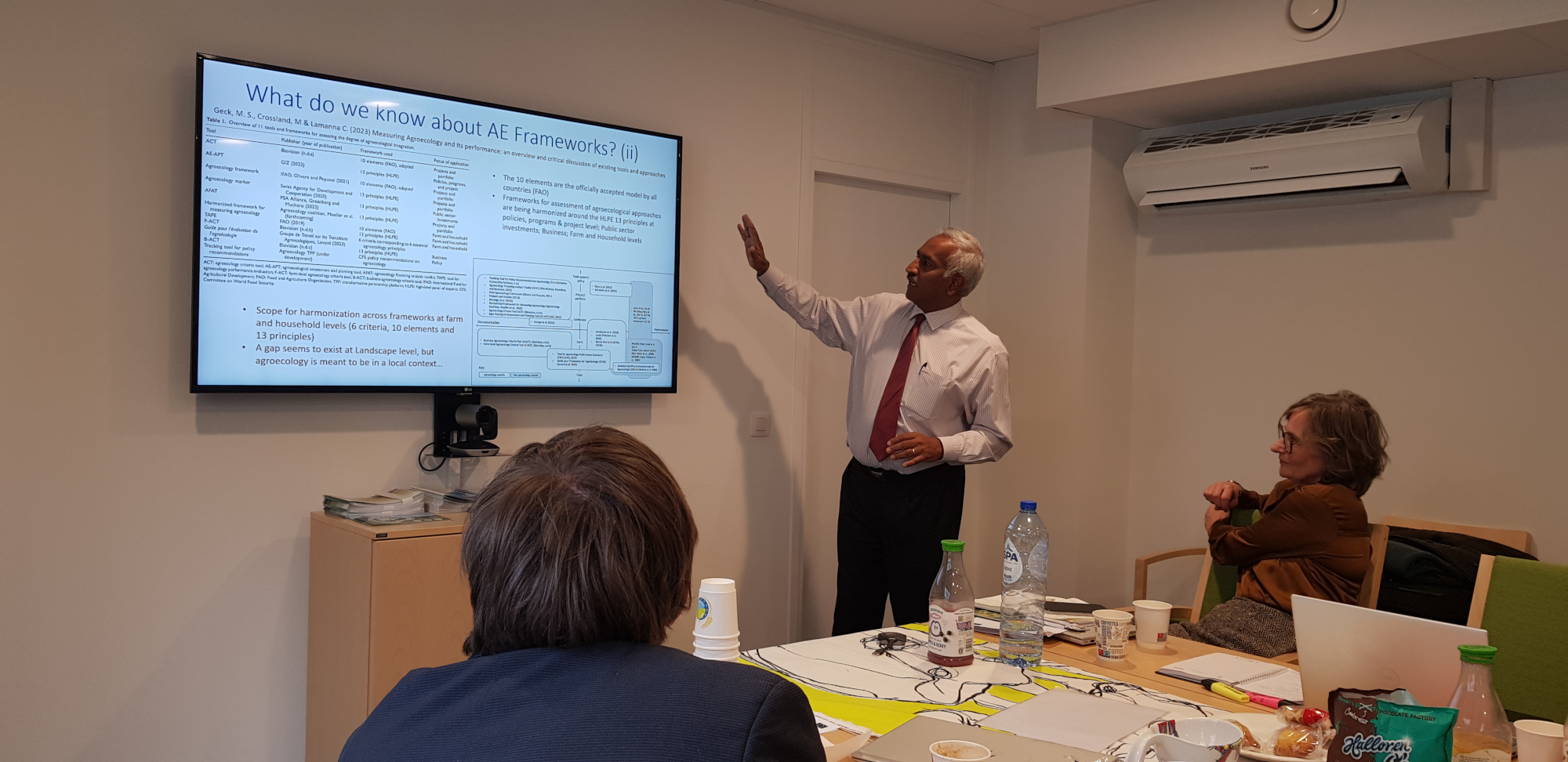
- Prolinnova consortium. The Institute of Natural Resources NPC (INR, South Africa) is representing the global Prolinnova network (Promoting local innovation within agroecology and natural resource management. The network was initiated in 1999 when NGOs in the Global South and North – supported by GFAR, the CGIAR NGO Committee & the French Ministry of Foreign Affairs – met in France to explore how to scale up participatory approaches to agricultural research and evelopment.
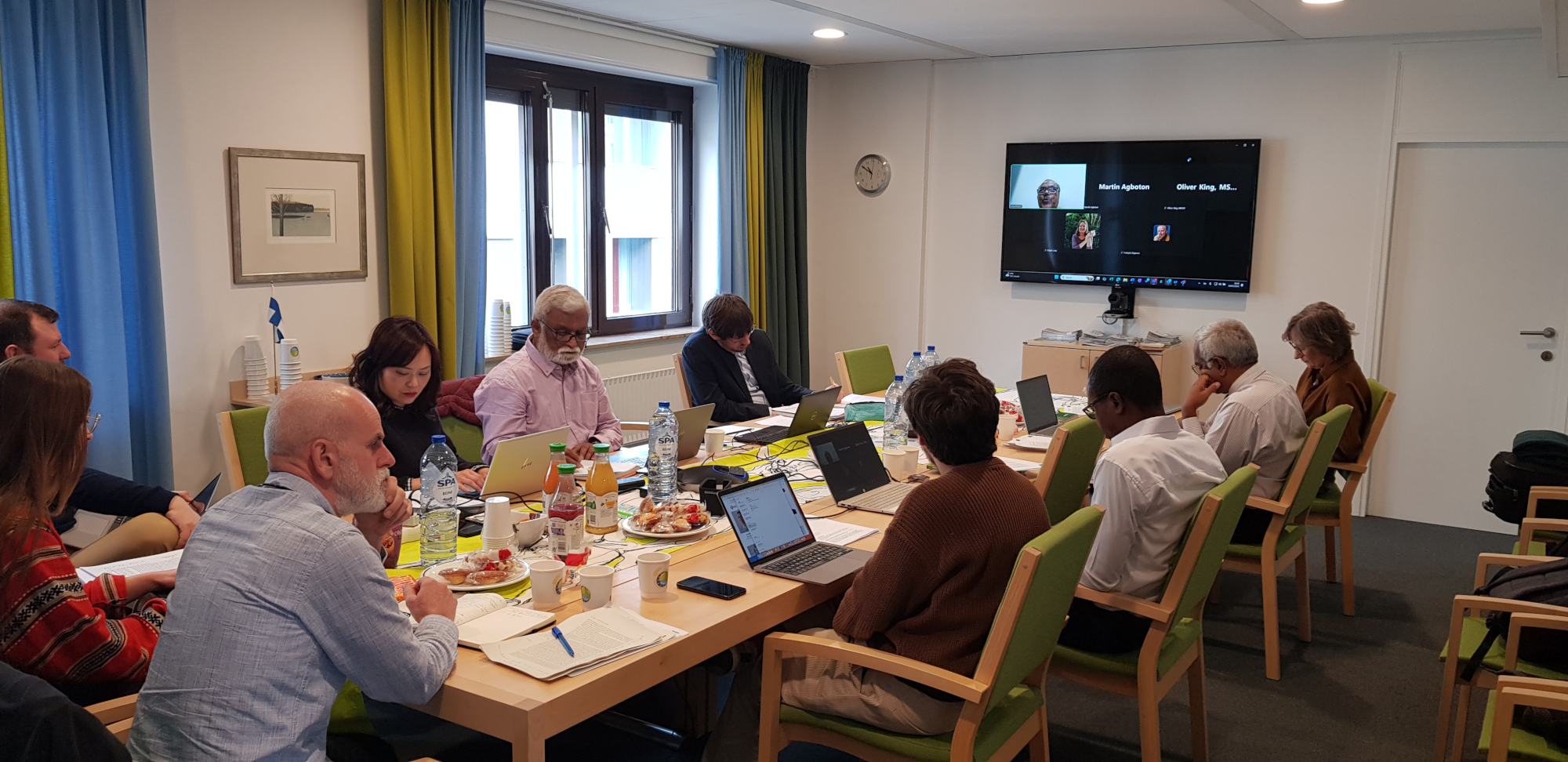
- PAFO consortium. The Pan African Farmers Organisation (PAFO) consortium consists of Forum for Agricultural Research in Africa (FARA, Kenya), Knowledge Management, Networking & Capacity Building Associates (KMNCB, Mauritius),FAO-ESS (Statistics Division), ASARECA, CCARDESA, CORAF (Sub-Regional Organizations), National Agricultural Research Systems (NARS), Agroecology Coalition Working Group on Finance & Investments.
- SEI consortium. The SEI consortium consists of Swedish International Agricultural Network Initiative (SIANI, Sweden), Swedish University of Agricultural Sciences (SLU, Sweden), (AgriCord, Belgium)
- Helvetas consortium. The Helvetas consortium consists of Swiss Federal Institute of Technology (ETH, Switzerland), Transformative Partnership Platform (AE-TPP), Alliance for Food Sovereignty in Africa (AFSA, Uganda). Helvetas and ETH build on the Nutrition in City Ecosystems (NICE) and the Inclusive Cities for Nutrition (IC4N) projects, both offering the link to 8 municipalities in Sub-Sahara Africa and South Asia.
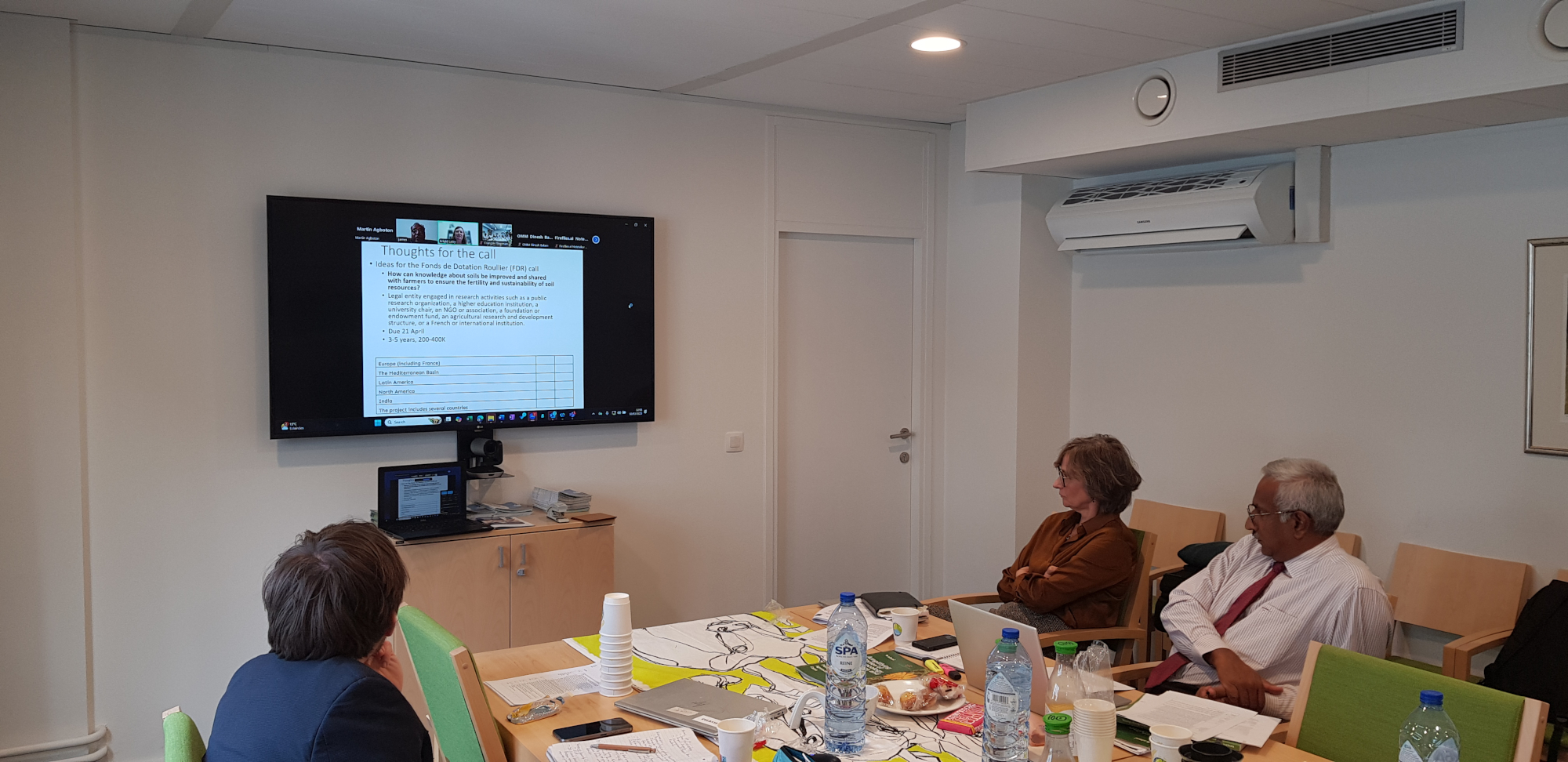
This GFAiR meeting is to discuss European funding opportunities for agroecology research and 2 French funding opportunities: The Fonds de Dotation Roullier: call for proposals for soil research (deadline 21 April) and the Fond d'Innovation (FID) (deadline: on a rolling basis).
Extracts of the programme
Community Managed Natural Farming / Rythu Sadhikara Samstha – Farmers’ Empowerment Corporation, an integrated institutional mechanism of the Government of Andhra Pradesh)
- by Dr. Kodeboyina Sivannarayana Varaprasad (Online): Senior Consultant APAARI, Senior Consultant Senior Consultant APCNF / RySS
- Reaction to 2 papers which have raised recently some debates among agroecology practitioners, organisations and funders. (see below)
Exploring Agroecological Principles in Practice: Preliminary Survey Results from the FO-RI Program - Stockholm Environment Institute (SEI), Swedish University of Agricultural Sciences (SLU) & AgriCord
- by Aziliz LE ROUZO of SEI
Agroecology survey: Matrix on potential synergies by Marcos Lana of SLU
Agroecology and the Alliance Bioversity-CIAT
- by Carlo FADDA (ABC, Cali) and Liao Yu-Chun
Activities of Prolinnova South India (host organisation, partners, type of work)
- by Brigit Letty Chief Scientist Institute of Natural Resources NPC South Africa (Online) & James TJ Country Coordinator PROLINNOVA South India
Agroecological Science and Technology Investment and Development Indicators
- by Krishan J. BHEENICK in behalf of PAFO
The Asia- Pacific Islands Rural Advisory Services (APIRAS, Thailand) by Dr. Rasheed Sulaiman V,
Director, Centre for Research on Innovation and Science Policy (CRISP),
this consortium consists of Asia-Pacific Association of Agricultural Research Institutions (APAARI, Thailand), Agricultural Research, Education and Extension Organization (AREEO, Iran), Bangladesh Agricultural Research Council (BARC, Bangladesh). Sri Lanka Council for Agricultural Research Policy (SLCARP, Sri Lanka), and Asian NGO Coalition for Agrarian Reform and Rural Development (ANGOC, The Philippines).
More Background on APCNF and private finance
2 papers have raised recently some debates among agroecology practitioners, organisations and funders:
1. Impact of large-scale, government legislated and funded organic farming training on pesticide use in Andhra Pradesh, India: a cross-sectional study - Despite a major government drive for organic agriculture, about half of APCNF farmers continued to use pesticides and no impact on pesticide sales at local retailers was observed. A combination of policy instruments (eg, bans on highly hazardous pesticides), not solely training for farmers, might be needed to eliminate pesticide use in agriculture.
2. Ramdas, S. R., & Pimbert, M. P. (2024). A cog in the capitalist wheel: co-opting agroecology in South India. The Journal of Peasant Studies, 1–23. https://doi.org/10.1080/03066150.2024.2310739 # 23 p. - see also PAEPARD blogpost: Opinion: The utilitarian approach of agroecology
Private finance plays a critical role in the Andhra Pradesh Community-Managed Natural Farming (APCNF) program by facilitating access to capital for Self-Help Groups (SHGs) and small-scale farmers.
- Financial institutions, including commercial banks and international development agencies, actively invest in SHGs, leveraging their collective structure to ensure loan repayment through internal peer pressure.
- This model enables SHGs to function as financial intermediaries, channeling credit from banks and impact investors to farmers transitioning to agroecological practices.
- The APCNF framework encourages SHGs to take on broader financial responsibilities, including aggregating farmers into market-oriented organizations, managing production inputs, and facilitating access to e-commerce and climate finance initiatives.
- However, the reliance on private finance has also raised concerns about the sustainability and equity of this model, as banks prioritize profitability and expansion of credit portfolios rather than genuine support for farmers' livelihoods.
Additionally, private financial actors, including international banks and corporate investors, use APCNF as a testing ground for green finance initiatives such as carbon markets and sustainability-linked investments.
Institutions like BNP Paribas and the Global Environment Facility (GEF) have introduced blended finance models, where public funds are used to attract private capital into agroecology. These investments are structured around market-based solutions, emphasizing profitability and financial returns rather than direct subsidies or support to farmers.
19 February 2025. APCNF SIGNS landmark MoU with US Pegasus Capital & Producers trust USA
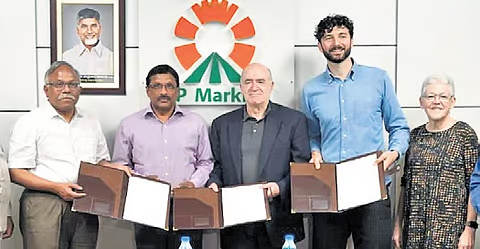
The signing of a landmark Memorandum of Understanding (MoU) between the Andhra Pradesh Community-Managed Natural Farming (APCNF) initiative and US-based Pegasus Capital and Producers Trust USA is significant for multiple reasons. This partnership aligns APCNF with global private finance and digital agribusiness, aiming to integrate Andhra Pradesh’s agroecological farming into international supply chains and sustainable finance mechanisms. The involvement of Pegasus Capital, known for its impact investment strategies, and Producers Trust, a blockchain-driven agri-tech enterprise, positions APCNF within a broader market-driven framework. This collaboration is expected to facilitate access to climate finance, market-based sustainability initiatives, and traceability solutions for natural farming products.
Comment:
While the MoU signals an opportunity to scale agroecological farming with international financial backing, it raises concerns about the implications for local farmers and self-sufficiency. The agreement may prioritize financialization over farmer empowerment, as the integration with digital agribusiness platforms like Producers Trust could shift control of farm produce to global supply chains governed by corporate metrics. Moreover, the introduction of blockchain traceability and sustainability-linked investments may further commercialize APCNF’s natural farming framework, making small farmers dependent on private capital and external certification standards. This shift reflects a broader trend of leveraging public agroecological initiatives for financial speculation, potentially sidelining grassroots-driven, farmer-led approaches.
